- Two Thanksgiving Thoughts for the ACAPosted 10 years ago
- Shop til you Drop at the Healthcare Marketplace Part 2: Frustration!Posted 10 years ago
- An Early Casualty in the Affordable Care FightPosted 10 years ago
- Some Good News for a ChangePosted 10 years ago
Robin Williams, Silenced
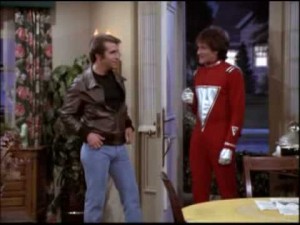 Robin Williams was someone whose manic comedy style I never connected with, and I gave it repeated attempts. From his first appearance in meeting The Fonz (Henry Winkler) on Happy Days (left)*, which led to his star-making role in “Mork & Mindy”, I recognized Williams was clever and mentally and verbally hyperactive, but I just didn’t find him as funny as other people did. I found him much more watchable in dramatic movie roles, like the ones in “The World According to Garp”, “The Dead Poets Society”, “Awakenings”, “The Fisher King,” and “Good Will Hunting”, for which he won a Best Supporting Actor Oscar®. A big exception is the animated feature, “Aladdin”, where Williams, the character of the genie, and Disney animator Eric Goldberg made for a perfect convergence (Alan Menken’s music didn’t hurt, either). Oh, and I liked him in “Mrs. Doubtfire”, which I watched recently. In his first starring role in a feature film, Williams clearly gave it all he had in Robert Altman’s 1980 musical “Popeye” and his performance was much better than the movie.
Robin Williams was someone whose manic comedy style I never connected with, and I gave it repeated attempts. From his first appearance in meeting The Fonz (Henry Winkler) on Happy Days (left)*, which led to his star-making role in “Mork & Mindy”, I recognized Williams was clever and mentally and verbally hyperactive, but I just didn’t find him as funny as other people did. I found him much more watchable in dramatic movie roles, like the ones in “The World According to Garp”, “The Dead Poets Society”, “Awakenings”, “The Fisher King,” and “Good Will Hunting”, for which he won a Best Supporting Actor Oscar®. A big exception is the animated feature, “Aladdin”, where Williams, the character of the genie, and Disney animator Eric Goldberg made for a perfect convergence (Alan Menken’s music didn’t hurt, either). Oh, and I liked him in “Mrs. Doubtfire”, which I watched recently. In his first starring role in a feature film, Williams clearly gave it all he had in Robert Altman’s 1980 musical “Popeye” and his performance was much better than the movie.
Williams seemed much more interested in making people laugh than he was in letting people see what he was really about. Outside of TV and movie roles, I’ve only seen him two ways, “on” or very subdued. He’d interrupt talk show interviews to go into his standup/ad-lib act, which always gave me the impression he was uncomfortable just being himself and preferred hiding behind characters when he was in public.
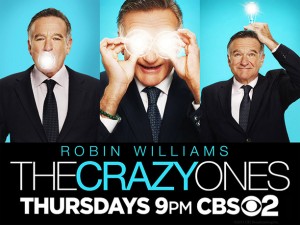 I hadn’t really followed his career lately and found it odd when I saw commercials promoting his TV series, The Crazy Ones on CBS. I read he did the series because he needed the money, which I again found odd until I realized he was paying two alimonies. When I later read the series was not renewed after its first full season, I felt disappointed for Williams. Even though I didn’t watch the show, I’m sure Williams gave it everything he had. The show had a 7.1 IMDB rating and, given more time, may have connected with a bigger audience (It took Seinfeld until its fourth season to really connect with its audience). Television is a brutal business.
I hadn’t really followed his career lately and found it odd when I saw commercials promoting his TV series, The Crazy Ones on CBS. I read he did the series because he needed the money, which I again found odd until I realized he was paying two alimonies. When I later read the series was not renewed after its first full season, I felt disappointed for Williams. Even though I didn’t watch the show, I’m sure Williams gave it everything he had. The show had a 7.1 IMDB rating and, given more time, may have connected with a bigger audience (It took Seinfeld until its fourth season to really connect with its audience). Television is a brutal business.
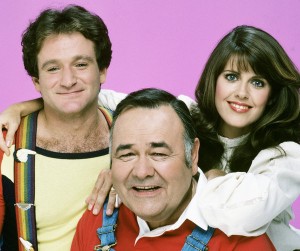 When you read or hear about responses to Williams’ suicide, the reaction you most often come across is shock or surprise. For me, it all added up, and I don’t feel good in saying that. I watched a 1980’s interview where Jonathan Winters (left, with his Mork & Mindy c0-stars Williams and Pam Dawber), a brilliant ad-libber and Williams’ biggest inspiration, talked about how he himself had moments when he contemplated suicide. I also read an interview of Jack Lemmon, another person who excelled at making people laugh (and was equally good in dramatic roles), where he said he went into deep depressions whenever he was not working. In both instances, I was surprised and deflated by the realization that guys that were so good at making me laugh were themselves unhappy people. Similarly, I watched a TV special narrated by Luci Arnaz where she said that, as much as her mother Lucille Ball made people laugh, she was very quiet and serious in private and nothing like her on-screen persona.
When you read or hear about responses to Williams’ suicide, the reaction you most often come across is shock or surprise. For me, it all added up, and I don’t feel good in saying that. I watched a 1980’s interview where Jonathan Winters (left, with his Mork & Mindy c0-stars Williams and Pam Dawber), a brilliant ad-libber and Williams’ biggest inspiration, talked about how he himself had moments when he contemplated suicide. I also read an interview of Jack Lemmon, another person who excelled at making people laugh (and was equally good in dramatic roles), where he said he went into deep depressions whenever he was not working. In both instances, I was surprised and deflated by the realization that guys that were so good at making me laugh were themselves unhappy people. Similarly, I watched a TV special narrated by Luci Arnaz where she said that, as much as her mother Lucille Ball made people laugh, she was very quiet and serious in private and nothing like her on-screen persona.
In retrospect, I think a reason I didn’t appreciate Williams in his hyperactive comedy mode is that I felt I was watching someone whose need to entertain seemed almost desperate. I guess you could say that about a lot of (or even most) actors and comedians, but with Williams it just seemed very pronounced. It worked out well, though. Williams’ relationship with his fans was symbiotic; they needed to laugh and he needed to make them laugh.
Had I not found out comedy legends Jonathan Winters, Jack Lemmon and Lucille Ball were themselves personally unhappy people, I likely would not have been concerned for Williams when his TV show got cancelled. I felt bad enough when I read about his reason for doing the show. My gut reaction to its cancellation braced me for what happened. That doesn’t prevent it from being tragic, saddening and hard to believe.
Beyond his work in movies and TV, Williams’ generosity and big heart have to be acknowledged for his work with Comic Relief, The Christopher and Dan Reeve Foundation, the LiveStrong Foundation, St. Jude’s Children’s Research Hospital, and other charities. He also performed in front of U.S. troops in 13 countries during his USO tours. I’m sure all those military personnel really appreciated and will never forget those shows.
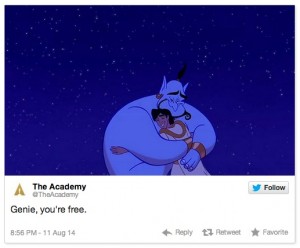 Williams’ passing will resonate for quite some time. I get the feeling I’ll have a deeper appreciation for his talent when I go back and look at his comic performances. Funny how that works.
Williams’ passing will resonate for quite some time. I get the feeling I’ll have a deeper appreciation for his talent when I go back and look at his comic performances. Funny how that works.
In the words of Joni Mitchell, “You don’t know what you’ve got till t’s gone.”
Rest in Peace, Robin Williams.
DPW
August 17, 2014
* Here’s Williams’ first TV appearance on Happy Days with Henry Winkler: https://www.youtube.com/watch?v=eHWXAJhmvyU
Here’s a clip of Williams and Winters together on The Tonight Show with Johnny Carson: https://www.youtube.com/watch?v=_NqEKvk9F4I
I wrote this piece before the articles documenting Williams’ depression and diagnosis of early Parkinson’s came out, but I’m not going to add it to what I’ve written, although I guess I alluded to depression, or at least its symptoms. I just wanted to comment on my take on Williams in acknowledging his tragic passing.
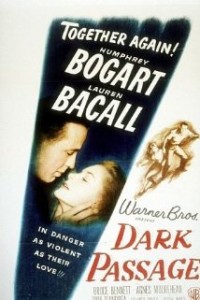 I have to mention the August 12 passing of Lauren Bacall. When Elizabeth Taylor passed away, articles said she was the last Hollywood star, which wasn’t accurate. Angela Lansbury is a contemporary of Bacall’s but had nowhere near Bacall’s star power and presence, which were evident in Bacall’s first screen performance in Howard Hawks’ 1944 “To Have and Have Not.” Bacall was special but, unlike big stars like Monroe, Taylor and Garland, she always came across as being very grounded and savvy. With Bacall’s passing, we’ve now witnessed the end of an era and the last of Old Hollywood’s movie stars.
I have to mention the August 12 passing of Lauren Bacall. When Elizabeth Taylor passed away, articles said she was the last Hollywood star, which wasn’t accurate. Angela Lansbury is a contemporary of Bacall’s but had nowhere near Bacall’s star power and presence, which were evident in Bacall’s first screen performance in Howard Hawks’ 1944 “To Have and Have Not.” Bacall was special but, unlike big stars like Monroe, Taylor and Garland, she always came across as being very grounded and savvy. With Bacall’s passing, we’ve now witnessed the end of an era and the last of Old Hollywood’s movie stars.
I’m looking forward to the inevitable marathon and well-deserved celebration of Bacall movies that Turner Classic Movies will likely schedule in the near future. At the top of the list of the movies I’m looking forward to seeing is the 1947 San Francisco-set “Dark Passage.”

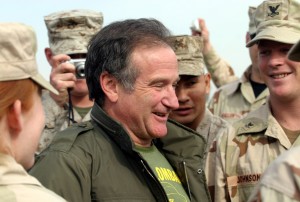
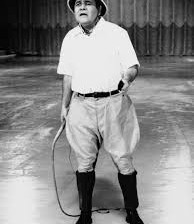
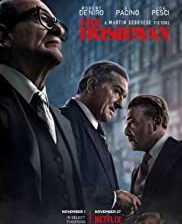

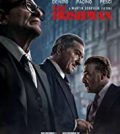
Thanks, Dan. It’s impossible to explain the reason for a suicide, and one reason for that is that even when one leaves a suidcide note, there are likely factors that can be as serendipitous as the weather on that day that are not factored in to the equation or are not acknowledged by the victim.
Thanks, Paul. I hope I didn’t come across as trivializing Williams’s death or the very serious and complicated issues of addiction, depression and especially suicide. More people now die from suicides than from automobile accidents (38,364 vs. 33,687 in 2010, according to the CDC), and far too many people die in auto accidents.
When I hear about suicides, and certainly with Williams, I feel terrible not only for the loss of life, but even more so for how badly the people must have felt and for how long they felt it to put them in the position where they felt there was no other option. And then there is the guilt the survivors feel, which is that they either didn’t pay attention to the signs of they should have been more supportive and now it’s too late.
An incredibly insensitive reaction to Williams’ suicide came from Fox News anchor Shepard Smith, who, in first reporting the story, called Williams a “coward.” Talk about someone not thinking before they speak, especially for a news anchor. Here’s an article about Smith’s comment and his subsequent apology. http://www.philly.com/philly/blogs/entertainment/television/Fox-News-Shepard-Smith-apologizes-for-suggesting-Robin-Williams-suicide-was-act-of-cowardice.html
Robin Williams’ tragic death has given the issues of depression and suicide the high visibility they desperately need and it motivates those affected to put even more of an effort into effective treatment. Now maybe people who are depressed and/or suicidal will take steps to explore healthy alternatives to their problems, especially now that they see how it affects survivors. It should also inspire mental health professionals to explore more effective methods of treatment (in terms of both volume and effectiveness), not that they weren’t giving it their best efforts before.
Very good Article. Every point was spot on with my thoughts. Thanks again Dan and I am sure those of us who saddened by this loss appreciate this article that much more.
An honest appraisal Dan.
Of all his movie performances, I appreciated his roles in The World According to Garp, Mrs. Doubtfire, Good Will Hunting and The Dead Poets Society above the others. I feel now that he is gone – I will go back and look at the others, with an open mind, knowing now what a generous and caring person he was and the struggles he endured. But I draw the line at Mork and Mindy, which I just simply could not get into.
Thanks for your comments, John. I mentioned I’d likely gain an appreciation for Williams’ performances now that he’s gone. Last night I watched Terry Gilliam’s 1991 “The Fisher King”, for which Williams received a Best Actor Oscar® nomination.* I watched it when it first came out on VHS 20 years ago. A guess it was my aversion to Williams but I didn’t care for it. In watching it last night, however, I found it thoroughly enjoyable and thought Williams’ performance was perfect and exceptionally moving in a role that was ─like the film itself─ tragic, romantic, and comic (or at least clever).
Like you say, it was a combination of Williams’ passing and being reminded of all his charitable work and caring actions that allowed me to watch both Williams and the film objectively. Actually, the viewing wasn’t objective; with all that’s happened, I wanted and even expected to like Williams. I’m already looking forward to watching it again.
Because Williams was such a vibrant personality, it’s still hard to believe he’s no longer alive. I usually don’t watch the Emmys, but I watched Billy Crystal’s tribute to Williams, which was understandably moving. I’m sure doing it had to be painful for Crystal.
It bothers me that it took Williams’ passing to make me have more of an appreciation for his work. By being so unbending (and basically letting Mork & Mindy influence the way I looked at Williams), I robbed myself of the satisfaction of enjoying his performances. Luckily, thanks to DVD and the many other ways we can see previously released movies, I have a second chance.
DPW
* Mercedes Ruehl won a well deserved Best Supporting Actress Oscar®, Jeff Bridges is typically solid, Amanda Plummer is a great quirky love interest, and Michael Jeter is otherworldly as the crazed cabaret singer drag queen. Jeter’s performance, especially in singing an altered version of Ethel Merman’s “Everything’s Coming Up Roses”, is so powerful it’s jarring.